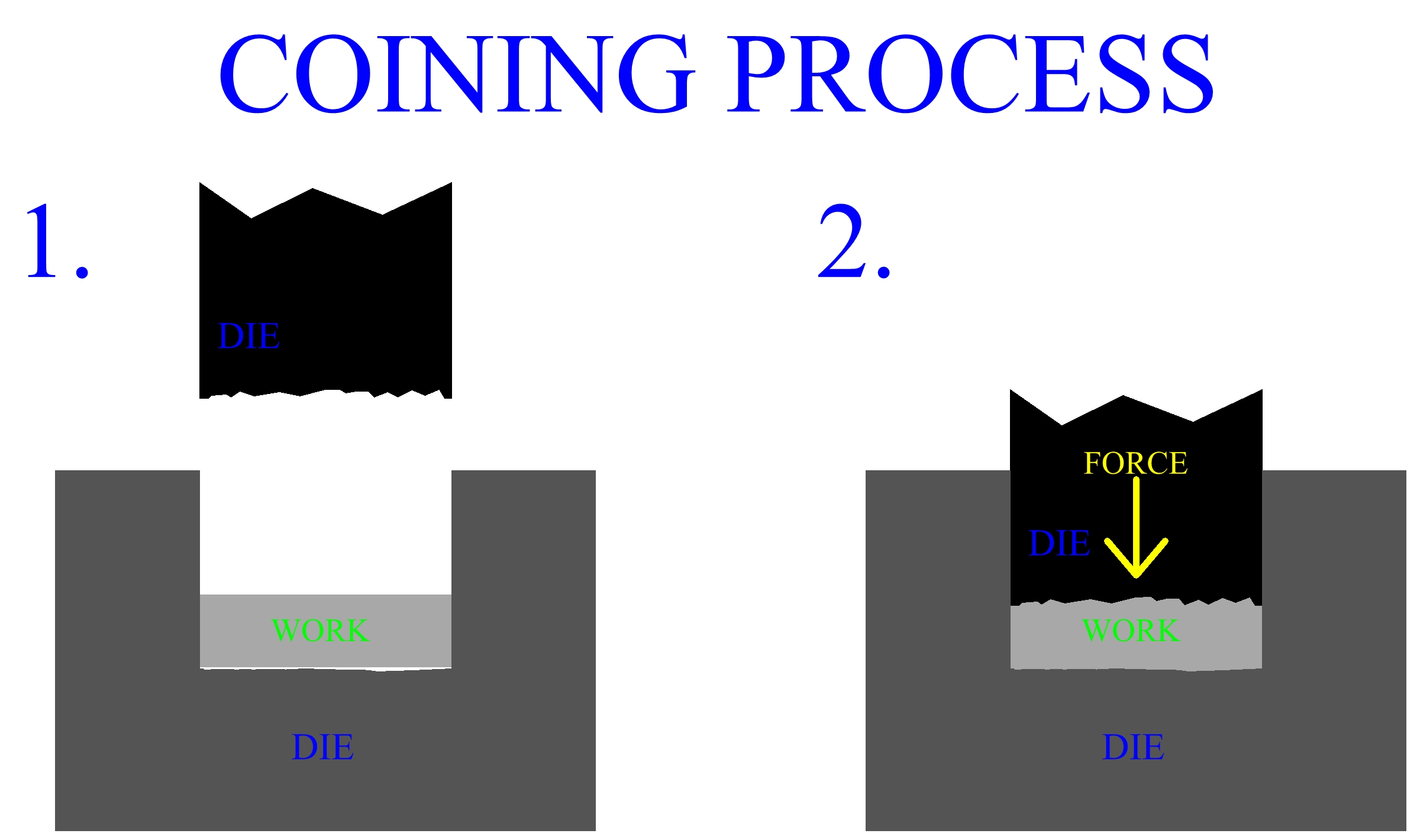Coins metal currency are created with the coining process.
Coining operation in sheet metal.
Coining is relatively severe.
A simple round metal slug is placed into the die and forced to flow into a given shape by compressing it see figure 3.
It is a cut in a straight line across a strip sheet or bar.
A beneficial feature is that in some metals the plastic flow reduces surface grain size and work hardens the surface while the material deeper in the part retains its toughness and ductility.
Embossing is an operation in which sheet metal is drawn to shallow depths with male and female matching dies.
What you need to know about coining coining is a metalworking operation used to create raised surfaces and imprints in metal.
Coining dies create the part s shape by squeezing the metal under extreme pressure.
Coining is a form of precision stamping in which a workpiece is subjected to a sufficiently high stress to induce plastic flow on the surface of the material.
And the punch is hit at the other end of the sheet producing a shearing effect.
The term coining comes from the idea that when it comes to money each metal coin is made exactly the same as the last despite being mass produced.
Coining also can reduce the metal thickness.
Coining fabrication is a basic type of bending in which the workpiece is stamped between the punch and die.
This is used for making works on metal like coins medals etc due to the fact that it produces finer and detailed.
The operation is carried out mostly for the purpose of stiffening flat panels the operation is also sometimes used for making decoration items like number plates or name plates jewelry etc.
It leaves a lean edge on the piece of metal is sheared or cut.
In this operation a sheet metal workpiece is placed or kept between two dies from one end.

